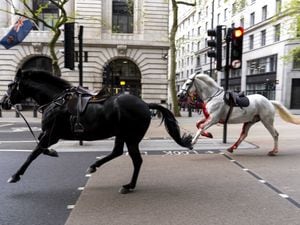Brown: Blair will ‘almost certainly’ be remembered for Iraq war decision
The former PM has revealed top-secret US intelligence casting serious doubt over Saddam’s destructive capabilities was not shared with Britain.
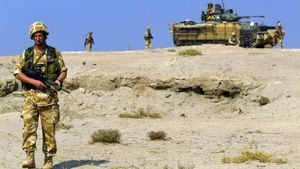
Former prime minister Tony Blair will “almost certainly” be remembered for the Iraq war despite all that he achieved, Gordon Brown has said.
Mr Brown, who was chancellor when the decision to go to war in 2003 was made, also said he accepted that the war was “not a glorious chapter in British history”.
The former prime minister was speaking as he launched his memoir My Life, Our Times at an event at the University of Edinburgh’s McEwan Hall.
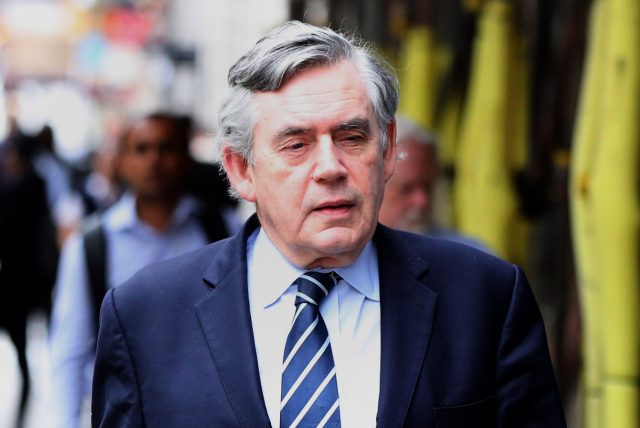
In extracts from the book, due for release on Tuesday, he has claimed the UK was “misled” over Saddam Hussein’s weapons of mass destruction, revealing that top-secret US intelligence that cast serious doubt over the dictator’s destructive capabilities was not shared with Britain.
Mr Brown claimed that only after leaving office did he become aware of “crucial” papers held by the US Department of Defence and believes the course of history could have been different had the information been shared.
He told the audience that the evidence at the time had appeared “irrefutable”.
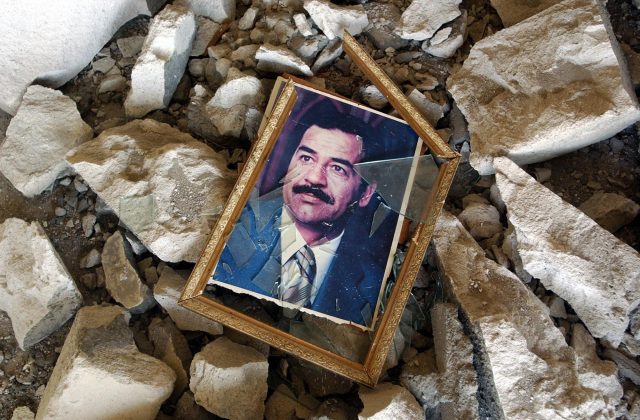
He said: “I regret what has happened, I tell you honestly that I believed the evidence that I was given, it was very compelling but I tell you now that the evidence that the Americans had at the time was more detailed and was more profound and more in depth and it was not shared with us for whatever reason.
“I believe that most of you sitting in this audience, if you had seen the evidence that we had seen at the time would have concluded exactly what I and others concluded but I believe also you’ve got to be honest with yourself and honest with the country about what happened and I now know that there was evidence that was not available to us.
“This is not a glorious chapter in British history but it is a chapter that allows us now I believe to be honest about what happened and I’m trying to be as honest as possible.”
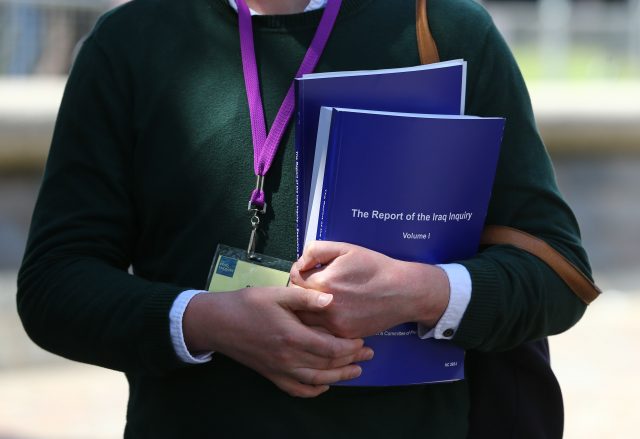
Reflecting that “all political careers end in failure one way or another”, he added: “Tony probably, great things he achieved, great things and we must not forget that, but he will be remembered almost certainly because of what happened over the Iraq war.
“My feeling is that I did not manage to persuade people to take the view that I took about how we dealt with the global recession.”
Mr Brown also said a national conversation was needed to tackle the big issues facing Britain, including Brexit, maintaining the Union and sexual harassment in politics.
He said: “If there were a proper national conversation I don’t think anyone would tolerate the standards we have seen in public life, the sexism and also the racism, and I think that people would demand, rightly so, because politicians have an influence on young people in our country, would demand that politicians have the highest possible standards and show the best forms of behaviour when dealing with other people, whether its women or whether its people of other colours or people who are in minorities who are often discriminated against.”


